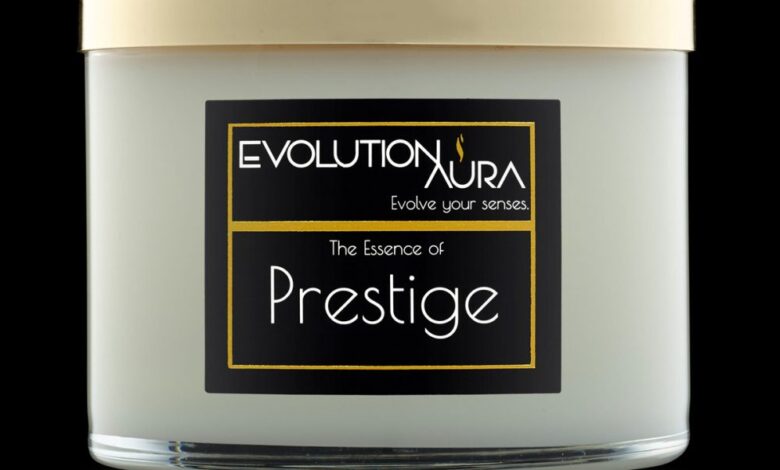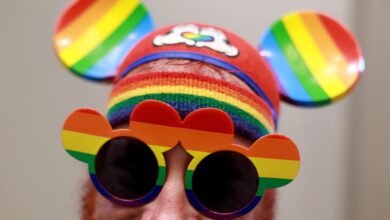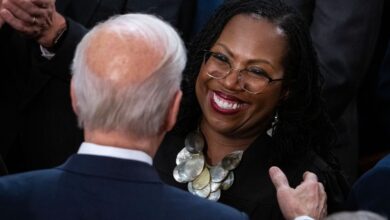Black gay business owner shares joys, challenges, and the power of fragrance

(Editor’s note: This is the fourth in a multi-part summer series of stories taking a closer look at how a group of diverse LGBTQ entrepreneurs survived and thrived during the pandemic. The series is sponsored by the National LGBT Chamber of Commerce. All installments in the series are available on our website.)
“Have you tried Prestige yet?” asks the luxury candle retailer Evolution Aura on its Instagram page, which features a gently flickering candle beside its elegant gold and black box. Both items rest prominently in the window corner of an apartment that promises to be rustic, chic, and relaxing.
The laid-back image with throw-back charm reveals much about this North Carolina company and its Black queer owner, Adrian Hill, the single father of a 12-year-old straight-A student and a self-described “fragrance connoisseur.”
Before starting his company initially as an e-business in 2017, he was in the fragrance department of a Nordstrom’s in Charlotte, a frequent haunt, after friends hipped him to Diptyque.
“The people there were good employees,” Hill said, adding they shared his passion for high-end fragrances. “A woman there told me to give Diptyque a try and to give my own line a try as well.”
Always one to “champion each moment,” Hill started Evolution Aura, which sells consciously sustainable products such as hand-crafted, soy-based candles while donating 20 percent of its annual profit to local charities.
“Ultimately, the line was developed for the community,” Hill told the Blade. “We wanted to be a beacon of life in the luxury space for everyone to enjoy. A kid who doesn’t have a bed may see a bed as a luxury. It’s all relative to the person, and we want them to experience luxury in their own way and to the fullest.”
But starting a Black-owned business comes with historic challenges, such as having limited access to capital.
A 2018 Small Business Credit Survey found large banks approved about 60 percent of loans for white small business owners, but only 50 percent for Latinx owners and 29 percent for Black small business owners, meaning only a third to a half of Black and brown applicants were approved compared to two-thirds of white applicants.
“I didn’t get any financing when I started the brand,” Hill said. “Financing is the number one obstacle we face as Black small business owners. But I had a slew of people around me who believed in me. I took my mission before people who said ‘I believe in it.’ Those people light a different flame in you, so failure is no longer an option.”
The problem of unequal lending practices persisted during the pandemic, according to a 2020 report by the Brookings Institute, as the Paycheck Protection Program in particular relied on mainstream financial institutions to deliver loans to small businesses.
Larger banks tended to favor existing customers, leaving Black-owned businesses like Evolution Aura to turn to what Hill called “alternative networks” to help them survive.
“I’m very grateful for any help I received,” Hill said. “If it wasn’t for my community and investor support, we would not have survived the pandemic.”
Being an e-business initially may have also helped Evolution Aura, as his luxury candles most likely helped many escape the pressures of unexpected lockdowns. Despite the odds, in 2021 Hill was able to open his first brick-and-mortar store in Charlotte’s upscale SouthPark Mall.
Both the Washington Post and Cision PR Newswire reported earlier this year that the number of Black-owned businesses increased by almost 40 percent during the pandemic while there was a slight drop in the number of white and Asian-owned businesses.
However, only 2.3 percent of businesses are Black owned even though 14 percent of the U.S. population identifies as Black.
In addition, Hill experiences unique challenges as a Black business owner who also identifies as an openly gay man.
“I wouldn’t necessarily say I had a coming out experience,” Hill said. “I was more of the effeminate one who helped change diapers and cooked and cleaned. Over time I just evolved into who I really am.”
But this evolution often adds a layer of economic challenge for the Black queer community.
According to Williams Institute data from 2021, Black LGBTQ adults experience greater economic insecurity than the larger Black population, with 56 percent of Black LGBTQ households qualifying as low income compared to 49 percent of Black non-LGBTQ households.
The study also found Black LGBTQ adults were more likely to be unemployed and to have a household income of less than $24,000 than Black non-LGBTQ adults.
Dr. Bianca Wilson, a senior scholar of public policy and one of the Williams Institute researchers for the study, told the Blade Black LGBTQ people in general fared worse than their non-LGBTQ counterparts in terms of mental health, income, and food insecurity.
“These differences are the largest among Black LGBT women,” she added.
The Movement Advancement Project reported these challenges were partly due to a history of unsafe schools, hiring bias, and on-the-job barriers to presenting authentically in the workplace. As a result, “LGBT people of color are some of the most disadvantaged workers in the United States – and face extraordinarily high rates of unemployment and poverty.”
However, despite the bleak data, Hill is amazingly upbeat and points to the successes of both him and his son despite their challenges. He considers community support as a blessing not only for his business, but for him as a survivor of sexual trauma and as a single parent.
“Fortunately for me, I have always had a very strong village of family and friends,” Hill said. “From the time I adopted my son, everyone rallied around and championed his undertaking. Even without a partner, there hasn’t been a moment I haven’t felt supported.”
Hill explained how it was important for him to express to his son and others that while things can start out rough, to keep focused on the “next chapters of your life” and maintain your journey.
Hill’s advice to future LGBTQ business owners, especially those of color, is to do their research and find support, including from organizations like the National LGBTQ Chamber of Commerce.
“The NGLCC has been monumental to my growth,” Hill said. “I definitely would say the minority business chamber of commerce, the Carolina Chamber of Commerce and the NGLCC all rallied behind me during the pandemic crisis to support my brand.”
This year, Evolution Aura celebrates its fifth anniversary, and Hill points out that small businesses like his are critical to the economy’s recovery. He stated they should be supported because they are best positioned to employ and support the local communities they are a part of.
“We are the ones that take care of our community,” Hill said. “And we hire from within our communities. Dollars spent here will go further in that effort.”
But most importantly, Hill points out that the sky’s the limit for LGBTQ youth, and they should let who they are shine as brightly as the candles he sells.
“Being LGBTQ should be empowering,” he encouraged. “Who you are is going to shine – and for every person that won’t support you, 10 people will. It’s just about believing in yourself and jumping out there and making it happen.”





